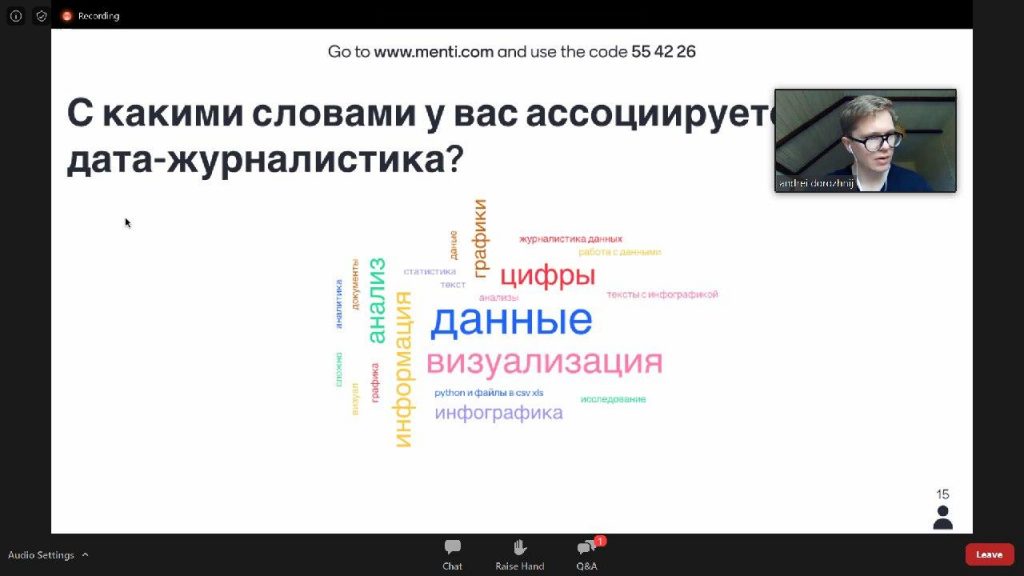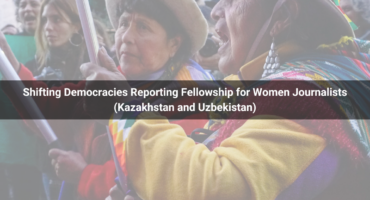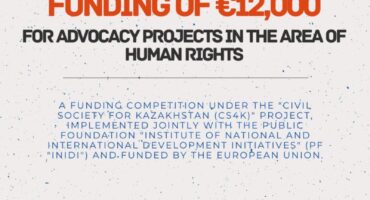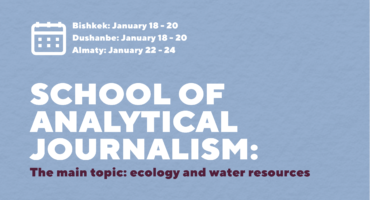“Prepare yourselves for new challenges, discoveries and inspirations”. These words became the slogan of the four day online workshop “The last word in new media”, which was held from May 26 to 29, 2020 as part of the IWPR mentoring program.
The workshop consisted of several intensive sessions. The first session was started by Grigoriy Tumanov, journalist, founder of the podcast “Muzchina, vi kuda?” and former editor-in-chief of samizdat “Batenka, da vy transformer”. Gregoriy presented social and explanatory journalism in the period of the pandemic. He talked about how to define the field of work, understand what the reader wants, and how to write the perfect response to what is bothering the audience.
During the second session, Anna Chesova, chief editor of “Meduza” podcast studio and, Alexander Sadikov, chief producer of “Meduza” podcast studio, talked about how to make podcasts for brands. Participants of the online workshop were divided into groups, briefs were distributed among them, and they were given tasks to write the concept, title, themes, and integration of podcasts. At the end of the session, the trainers evaluated the work of the participants.
“The topic of the podcasts for a long time remained a “gap” for me, due to shallow familiarity with this subject. Now I have learned a lot of interesting things about it and even got an answer to my questions. Speakers were great. On top of that, Grigoriy Tumanov gave useful tips on working in the media and social networks”,shared Zhaslan Suleimenov, one of the participants of the event.
On the second day of the workshop, data journalist and infographic designer Andrey Dorozhny, told the participants about what they need to know and be able, to create data materials. During the practical session, the participants of the workshop collected, filtered and visualized data without programming skills in online mode.
“Since we are all working remotely now during the pandemic, the only correct and effective way is to work with information. This is what we were taught. That is, the topic is insanely relevant for us,” said Anushervon Bekov, a participant of the workshop.
The SMM session raised great interest among the participants. The speaker was Alina Zhetigenova, social media manager of TV channel “Current time”. Alina shared her knowledge on how to create useful, unique and relevant content, increase traffic to the company’s internet resources, and talked about the most niche platforms for brand promotion, as well as about strategies for planning work separately for each platform.
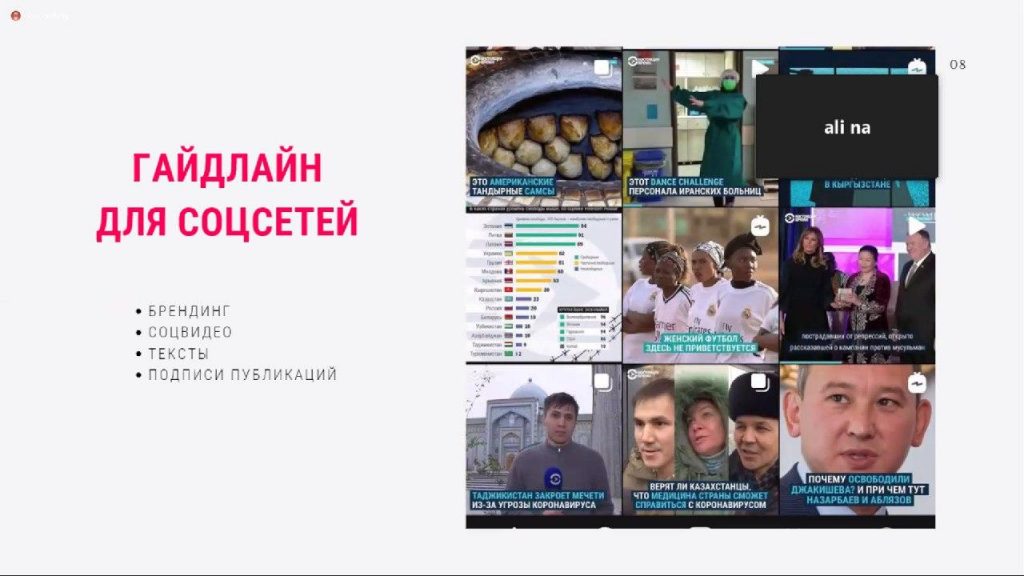
Zhamilya Jeenbaeva wrote in her feedback that SMM was an important session for her, “as we are expanding and strengthening the editorial board and plan to combine several Instagram accounts”.
Considering the situation with the pandemic, the program also included a topic on media coverage of the crisis, which was conducted by media trainer and media consultant Nina Kuryata. She emphasized the importance of working with the primary source and checking information: “if necessary, refute your own erroneous materials or someone else’s misinformation, if it has become widespread”.
Nina also held a separate session on the development of regional media.
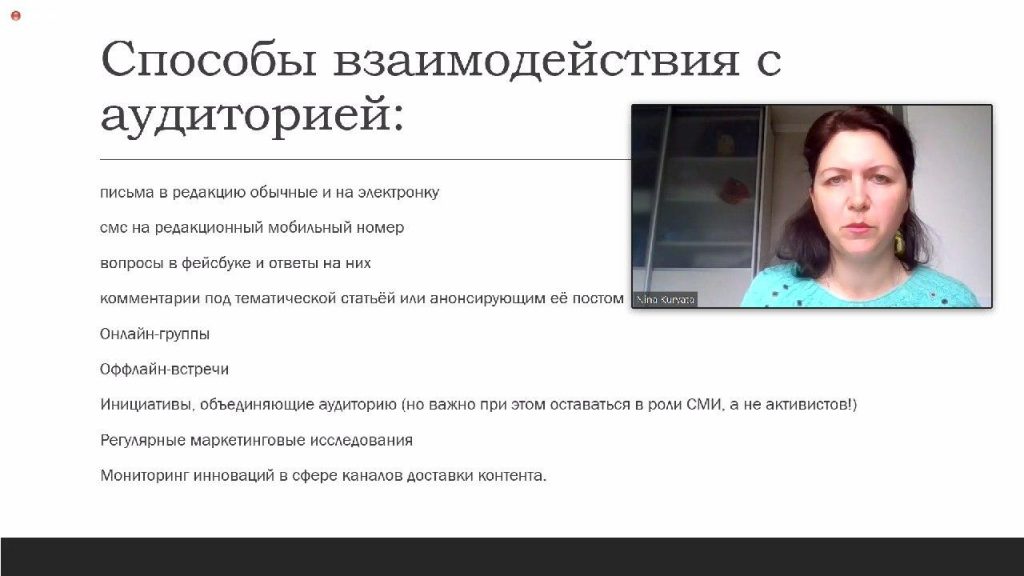
“A good regional media should look at what is happening around the world or in the country and apply it to your city, village, and etc. And answer questions: what has changed, how it affects me, my neighbor and etc. Then regional media becomes closer to the reader”, she told the audience.
The last day of the training was opened by IWPR Regional Director for Central Asia, Abakhon Sultonnazarov and British Ambassador to the Kyrgyz Republic, Charles Garrett. They welcomed and thanked the audience for their active participation.
“I am confident that the conclusions and the results of our joint work will provide you with additional knowledge, open new horizons to you, introduce new people and demonstrate new opportunities for more effective promotion of your ideas, and you vision of how the new media should work today in the long term”, said Abakhon Sultonnazarov.
“The pandemic has once again demonstrated the need for reliable, verified and objective information. Reliable information is the oxygen of a strong, democratic society. And your work [as journalists and bloggers] is very important for the development of democracy in your countries”, said her Majesty’s Ambassador, Charles Garrett.
Vsevolod Pulya, editor in chief at Russia Beyond and media consultant, completed the training week with the theme “The Future of Journalism”. Vsevolod brought up such topics as the transition from a digital society to the one of experience and impressions, the shifting interests of readers, and the rivalry of authors and platforms for the audience. Besides that, he talked about the technology of augmented and virtual reality for media – “tools that in terms of the level of engagement will equate us with entertainment content. Emotions over the edge,” he added.
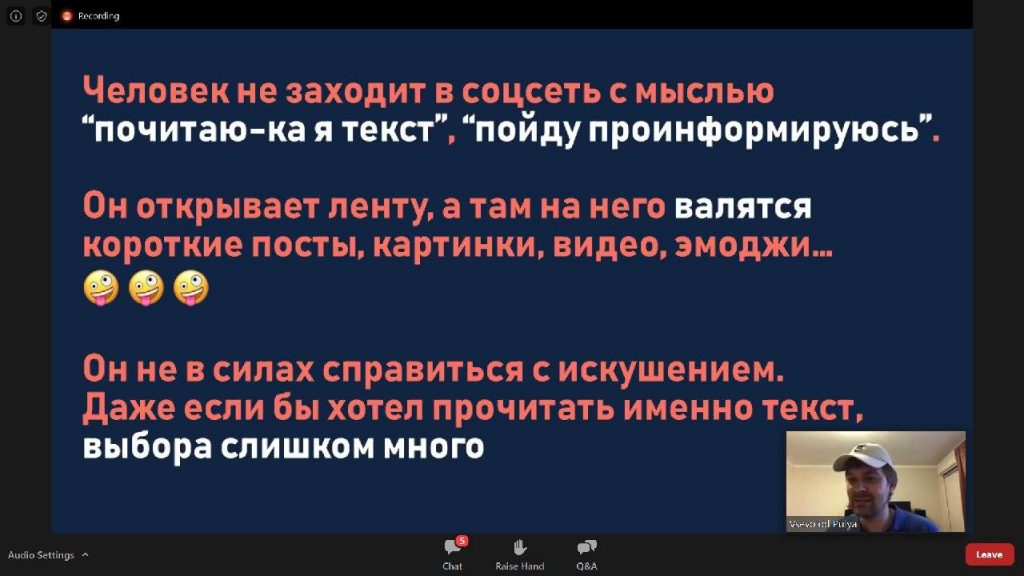
In total, the workshop was attended by journalists and bloggers from four Central Asian countries – Kazakhstan, Kyrgyzstan, Tajikistan and Uzbekistan, and over 160 people from seven countries have registered for the online workshop.
All recordings of the workshop, as well as presentations by speakers, will be published on the website.
Subscribe to us on Telegram!
This project is implemented by the Institute for War and Peace Reporting (IWPR) with the financial support from the UK Government. The views expressed during the project activities and/or in project publications do not reflect the official views of the UK Government and IWPR
If you have found a spelling error, please, notify us by selecting that text and pressing Ctrl+Enter.


